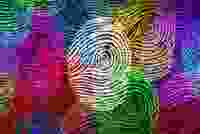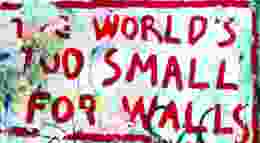
Misunderstanding Diversity
For diversity to create a society free from social division and prejudice, the goal of diversity should not be the promotion of ourselves, but the understanding of others, argues Professor Darren Zook.
If you are like most people, you probably think that the deep social divisions we see all around us are a result of insufficient diversity.
Racism, sexism, prejudice, bigotry, and all of the other dismal social ills that suffuse the dystopian realm of identity politics are all the result of a lack of progressive diversity programs that should empower those who lack power and shine the light of justice onto those who know only injustice. More diversity creates more equality, and more diversity creates more justice, right?
But what if I told you that everything about that argument is wrong? My point in saying so isn't that the promotion of diversity and the persistence of social division and prejudice are not connected. My point is that the prevailing conventional wisdom has the causal correlation backwards.
Social division and prejudice do not persist because we haven't promoted enough diversity, but rather the promotion of diversity has itself exacerbated social division and prejudice.
Before I explain this counterintuitive conclusion, let me first clarify that I am not opposed to the promotion and cultivation of diversity. Indeed, I am in full support of it. That may sound like I am contradicting myself, but the contradiction resolves effortlessly when I point out that what we need to promote is not more diversity, but rather a different diversity.
When it comes to diversity policy and practice, we've lost our way, and what we really need to do at this point is roll up our sleeves, reconsider the whole purpose of what we are trying to do, and then craft an entirely different approach to the project of diversity.
The reason that diversity has not produced the results it promised – social justice and equitable integration – is that the vast majority of diversity-advocates misunderstand the purpose of diversity. Most advocates of diversity see it as a remedy for historical injustice, an indirect form of reparations or restitution to pay for historical mistakes and crimes. But the US Supreme Court has made clear, in particular in its ruling on the affirmative action case Grutter v. Bollinger (2003), that the purpose of diversity is not to correct the presumed mistakes of the past but to facilitate an intercultural dialog in the present – something the Court referred to as the "robust exchange of ideas."
For those who still cling to the mistaken idea that diversity is a way of rectifying the past, however, the purpose of diversity is reduced to a haplessly simplistic vision: push aside the historical oppressors (perpetrators) and promote the historically oppressed (victims). Power is to be redistributed from the former to the latter until all identity groups have equal power. This is where the language of "equity and inclusion" comes from.
The reason I say this approach is haplessly simplistic is because it drives a misguided bulldozer through the complexities of the past. It also, to return to my original point, puts diversity in the service of something it wasn't designed to do, namely to fix the mistakes of history. We misunderstand diversity even as we try to promote it, which is counterproductive. It also exacerbates social division and prejudice because it opens up an endless and irresolvable debate about who oppresses and who is oppressed, which then becomes the dyspeptic centrepiece of discussions about diversity.
There is an additional reason why diversity exacerbates social division and prejudice, and that is because diversity encourages us and indeed rewards us for retreating into our separate identity groups, for advocating for an ever-larger share of the diversity pie for our own group. Inter-group rivalries become the dynamic of diversity, rather than, as it should be, the robust exchange of ideas.
So, what can we do? Where should we start? Aside from dismantling nearly everything that buttresses our current approach to diversity, we need a new vision of diversity that rewards participation in the robust exchange of ideas. As paradoxical as it may sound, the focus of diversity policy and practice needs to be reoriented away from our own identities and toward the identities of others.
In short, for diversity to create a society that is free from social division and prejudice, the goal of diversity should not be the promotion of ourselves, but the understanding of others.







